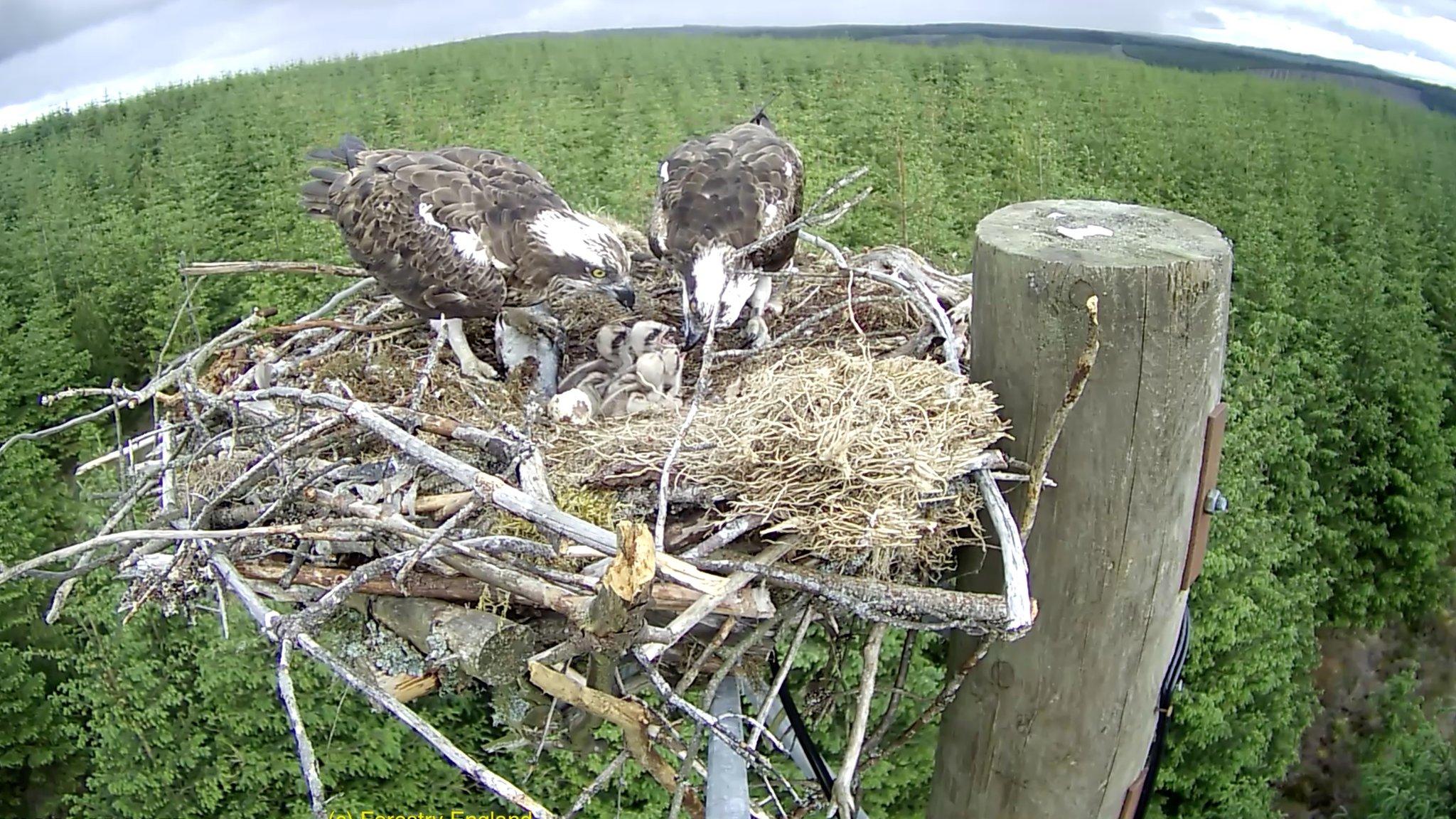Kielder forest: Osprey eggs laid but fewer breeding pairs return
- Published
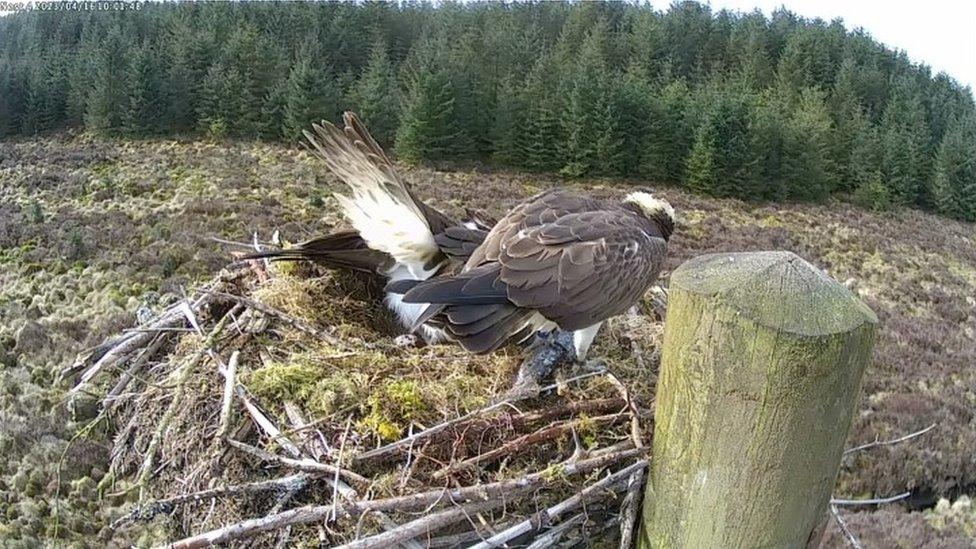
The first egg of the season arrived at Kielder on Sunday
Ospreys returning to Kielder have laid two eggs but experts fear this year will see a fall in the number of breeding pairs.
The birds of prey have nested at the Northumberland site between March and September each year since 2009.
This year some birds have not returned and others are searching for partners.
"We've got four nests where we should have more eggs in the next week or so," Joanna Dailey from the Kielder Osprey project said.
"It's been a bit of strange start to the season because some of the ospreys haven't got back and so some of them who are normally breeding here are looking for new partners.
"The two pairs who have eggs were first as they got here quicker than the others."
The first egg was laid on Sunday and a second followed on Tuesday.
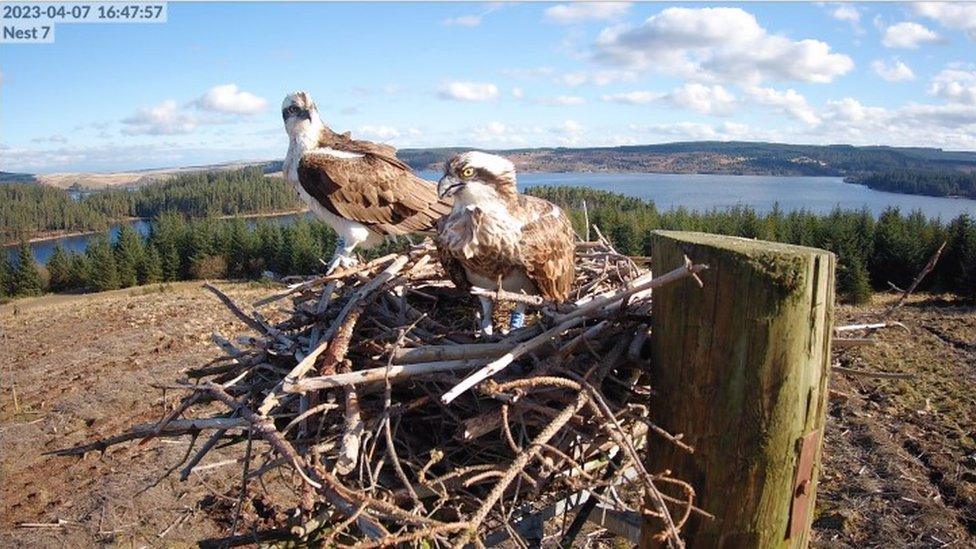
The pair of ospreys laid an egg earlier this week
In 2021, record numbers fledged as the highest ever number of adult birds returned to breed. Last year a milestone was reached when Kielder Forest's 100th osprey chick took flight.
This year there are seven nests around the lake but three of them are currently dormant.
While ornithologists fear it will not be a record year for chicks, they remain hopeful a four-year-old female may have time to find a partner.
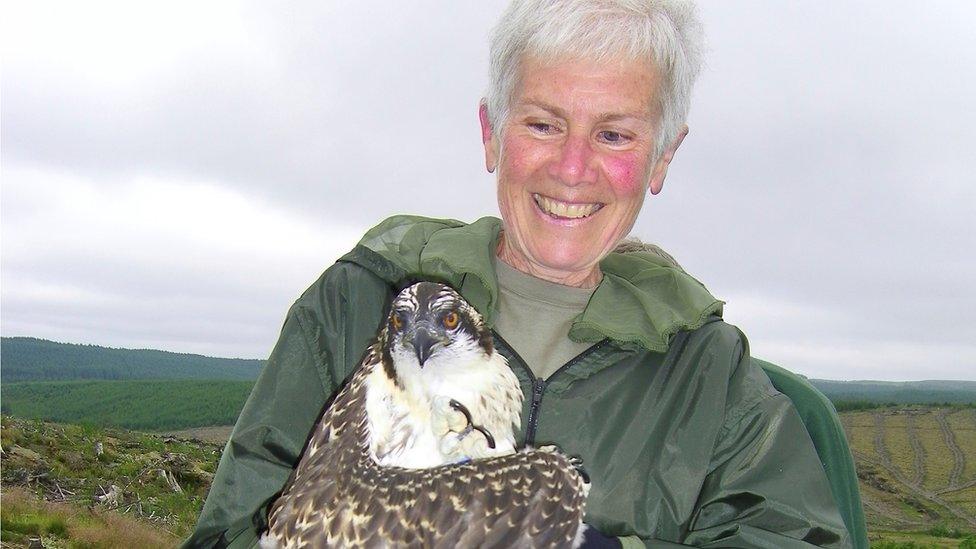
Joanna Dailey writes a blog on the birds activities on the Kielder Ospreys Project website
Ms Dailey added: "There are always ups and down with wildlife. Last year wasn't as good as the year before that and this year might be down again but next year we could have a sudden record.
"It's just one of those things. We've got a stocked lake here with plenty of juicy rainbow trout for them and there are good forest areas and we've got a great opportunity to have them breeding here."
She added the osprey population was "slow growing" but it was "really rewarding" to discover birds from Kielder were breeding in other parts of the UK.

Follow BBC North East & Cumbria on Twitter, external, Facebook, external and Instagram, external. Send your story ideas to northeastandcumbria@bbc.co.uk, external.
Related topics
- Published29 July 2022
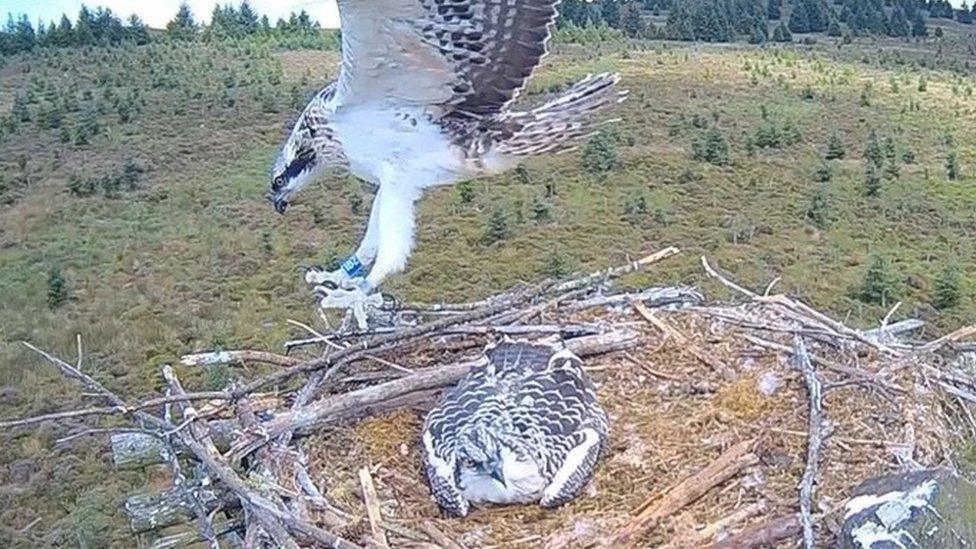
- Published10 May 2022
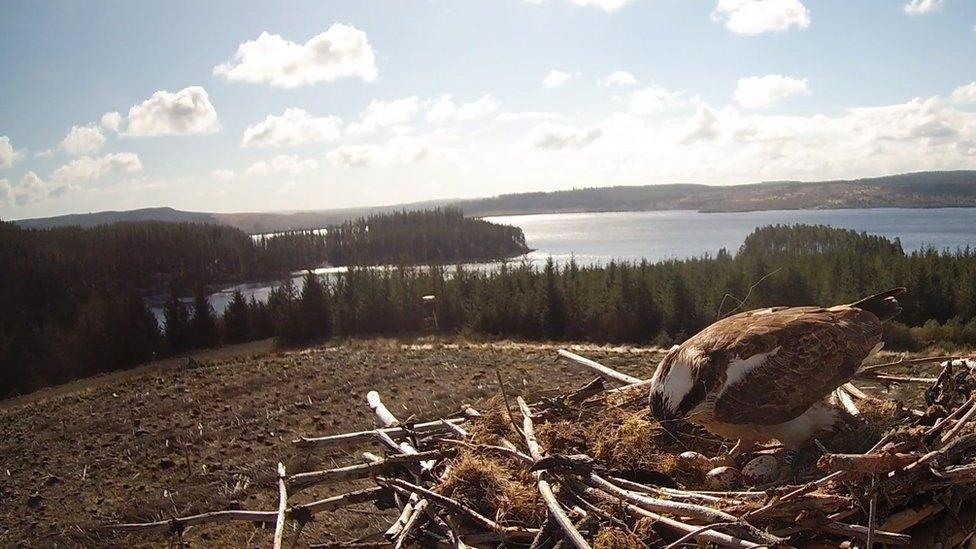
- Published15 August 2021
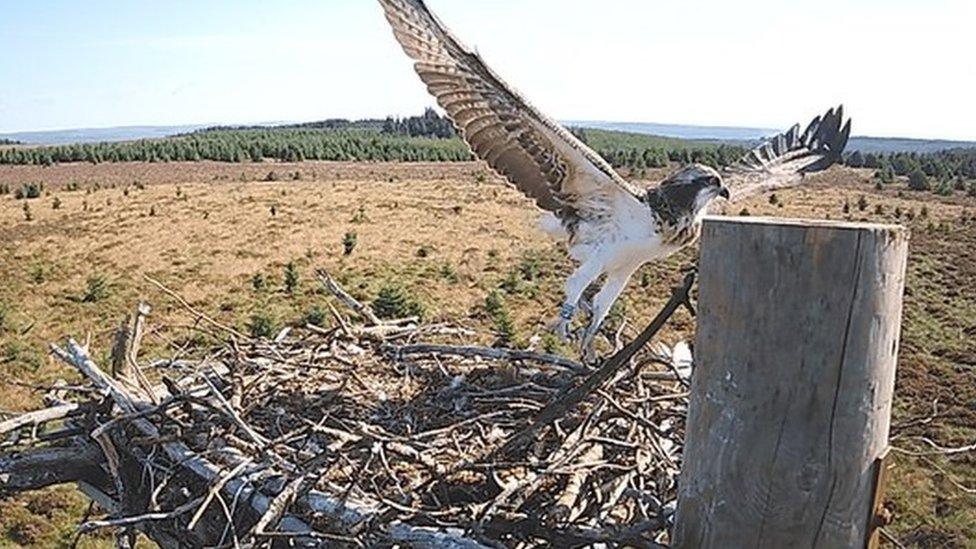
- Published8 June 2020
